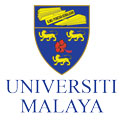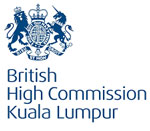Date: 14 - 15 March 2023 (Tuesday & Wednesday)
Time: 9am - 5pm
Venue: Auditorium, Asia-Europe Institute, Universiti Malaya
Register here: https://bit.ly/npc2023my
For further info, kindly contact:
dinazaman@imanresearch.com or nadialukman@imanresearch.com
Southeast Asia has had a tumultuous history, having experienced numerous armed conflicts post World War II and during the Cold War, it was even dubbed as the “Balkan of Asia” by security pundits and conflict scholars as it became the battle ground of opposing global ideologies. To many, the US-Vietnam war (1955-1975) and the Indo-China wars (1946-1991) are still within living memory. Today, Southeast Asia is far from what it was during those turbulent days. The establishment of ASEAN paved the way for a more stable and prosperous region.
However, it is still home to several unresolved conflicts and disputes in multiple countries, the most recent being the Myanmar 2021 military coup which is bringing the country to the verge of an all-out civil war. The neighbouring countries are seeing an exodus of people fleeing the violence in Myanmar, on-top of those fleeing the situation in Rakhine state which is also in Myanmar. There is also the on-going Southern Thai conflict and parts of Southern Philippine which continue to be a problem. This does not include the unsettled territorial and maritime claims between countries that have also led to violent skirmishes as well as the on-going USChina rivalry in the South China sea.
While most of these conflicts are intrastate conflicts, physically confined within the conflicting country, the humanitarian fall-out of these conflicts cut across territorial boundaries as the exodus of refugees fleeing violence, running to neighbouring countries for safety.

Malaysia, apart from being a destination of more than 3 million migrant workers from South and Southeast Asia, has also become the destination country for refugees and asylum seekers within the region and also as far as the Middle East. Malaysia as a country is very much affected by these especially in terms of human movement and migration and it is not a new problem. Malaysia is second to Thailand, with the highest number of refugees and asylum seekers. Our relatively stable and strong economy and diverse, multi-ethnic and multilingual demographic makes us an appealing place for refuge. One of the most prominent refugee and asylum settlements that Malaysia has had goes back to the Vietnam war, with the arrival of the “boat people'' throughout the 1970s up until the 1990s, when the settlements were closed down as the last refugees were resettled to a third country.
ASEAN has always been very steadfast in adhering to its own policy of non-interference – seen as the pillar for the success of ASEAN thus far. When it comes to inter-state relations, ASEAN has been able to strengthen its institutional framework for solving problems and realizing its objectives, and to establish a firm foundation to facilitate and strengthen the process of community building. However, ASEAN has not yet proposed a framework for intrastate conflict that has regional spill-over effects.
A 2-day conference looking at how Malaysia is deeply affected by regional conflicts from 3 perspective:
The key conflicts affecting Malaysia currently are several: conflicts occurring within Myanmar including the recent coup and situation in Rakhine state, the Southern Thai insurgency, Mindanao violence and conflict and of course the sporadic attacks, bombings, kidnappings, and assassinations related to militancy or terrorism in neighbouring countries as well as national waters within East Malaysia as well as territorial claims in the South China sea.
Target Participant: 100 people
| Day 1 – Tuesday, 14 March 2023 | |
|---|---|
| 8.30 | Arrival of Delegates and Registration |
| 9.00 | Welcome note - Altaf Deviyati, Managing Director, IMAN Research |
| 9.05 | Welcome remarks – Dr. Akiko Horiba, Program Director of the Asia Peace Initiative Department, Sasakawa Peace Foundation (SPF) |
| 9.10 | Opening remarks – His Excellency Commissioner, Charles Hay MVO of the British High Commission. |
| 9.20 | Opening Speech – YBhg. Distinguished Professor Dato’ Dr. Rajah Rasiah, Executive Director of Asia-Europe Institute, Universiti Malaya. |
| 9.45 |
Keynote Speaker 1: Regionalisation of Conflicts and the Role of ASEAN I Gusti Agung Wesaka Puja, Executive Director, ASEAN Institute for Peace and Reconciliation Moderator: Dina Zaman, IMAN Research |
| 10.30 | Mid-morning Break and Group photo |
| 11.00 |
Session 1: Local Consequences of Regional Conflicts
|
| 12.30 | LUNCH BREAK |
| 14.00 |
Session 2: Regional Peace and Security
|
| 15.30 | AFTERNOON BREAK |
| 15.45 |
Session 3: The Economics of Armed Conflict
|
| Day 2 – Wednesday, 15 March 2023 | |
|---|---|
| 9.30 |
Keynote Speaker 2: Mediation for Peace: Building Partnerships for Sustainable Peace Julian Weinberg, Non-Resident Fellow, Stanford Center on International Conflict and Negotiation, Stanford Law School. Founder & Director, Dialogue Action Moderator: Adli Zakwan, ABIM |
| 10.15 | MORNING BREAK |
| 10.30 |
Session 4: Climate, Culture & Peace
|
| 12.15 | LUNCH BREAK |
| 14.00 |
Session 5: Sustainable Peacebuilding as the Way Forward
|
| 15.30 | Summary of the Conference and Closing Ceremony |

IMAN Research (IMAN)
IMAN is a think tank which focuses on security and socio-political matters. We concentrate in the domains of peacebuilding and human security within the Southeast Asian region but primarily Malaysia, Thailand, Philippines and Indonesia. We are spearheaded by experts with extensive local and international experience in diverse areas, particularly in the area of human security and resilience and have conducted studies such as psycho-social intervention within communities in conflict and participatory urban redevelopment. We are competent in crosscultural engagement and as an organization, we place a high value on inclusivity, diversity and indigenous knowledge.


Universiti Malaya (Faculty of Arts and Social Science and Asia Europe Institute)
A premier research university, Universiti Malaya, or UM is Malaysia's oldest university and is situated in the southwest of Kuala Lumpur, the capital of Malaysia. It was founded on 28 September 1905 in Singapore as the King Edward VII College of Medicine and on 8th October 1949, it became the University of Malaya with the merger of the King Edward VII College of Medicine and Raffles College (founded in 1928).

Muslim Youth Movement of Malaysia (ABIM)
Muslim Youth Movement of Malaysia (ABIM) is a non-profit organization founded in 1971 with the aim of empowering and engaging the youth in Malaysia. Through its various programs and initiatives, ABIM seeks to promote a progressive and moderate Islamic identity, as well as foster leadership skills and community service among young Malaysians. With a strong commitment to promoting peace, justice, and equality, ABIM has become a leading voice in advocating for the rights and interests of youth in Malaysia and beyond.

Sasakawa Peace Foundation (SPF), Japan
Established since 1986, has worked since its inception to advance international exchange and cooperation. Addressing the diverse and complex issues of the 21st century. As a private Japanese foundation, SPF strives to strengthen cooperation at all levels between Japan and other countries. SPF make use of their freedom as a private foundation to effectively promote activities, proposals, and exchanges in the search for a new governance model for human society.

British High Commissioner (BHC), Malaysia
BHC represents the interest of the British government in its relations with the Malaysian government. BHC monitors the economic, political and social situation of Malaysia a and seek to strengthen the bilateral relationship between both countries.
Last Update: 14/03/2023